A pair of longtime teammates were inducted into the Hockey Hall of Fame together on this date. Also, the most famous international series ever played resumed in a new setting. Finally, the NHL installed its first-ever salary cap and saw the relocation of one of its early teams.
Stosh & the Golden Jet Inducted Together
Bobby Hull and Stan Mikita are forever connected to each other. They were teammates on the Chicago Blackhawks for 13 seasons from 1959 until 1972. They won the Stanley Cup together in 1961 and played in three other Stanley Cup Finals. They even have statues next to each other outside of the United Center in Chicago. Appropriately enough, on Sept. 22, 1983, they were inducted into the Hockey Hall of Fame together.
Hull began his legendary career in 1957. He had a breakout season in 1959-60 with 39 goals and 81 points. He scored 50 goals in 1961-62, becoming the first Blackhawk and just the third player in NHL history to do so. He had five seasons of at least 50 goals and was the first to ever have back-to-back 50-goal seasons. He won the Hart Trophy (NHL MVP) twice and the Art Ross Trophy (leading scorer) three times. His 604 goals are still the most in franchise history. He is fifth in assists with 549 and second in overall scoring with 1,153 points.
Mikita’s first full season came in 1959-60 after three games the previous year. Early in his career, he was known for his offensive production and his knack for sitting in the penalty box. He had 300 combined penalty minutes in 1963-64 and 1964-65 before he figured out that he could score more points by being on the ice. In 1966-67 and 1967-68, he had just 26 total penalty minutes and won the Lady Bing Trophy, for being the most gentlemanly player, in both seasons.
He also won a pair of Hart Trophies and was a four-time winner of the Art Ross Trophy. He is the Blackhawks’ all-time leading scorer with 1,467 points and still leads with 926 assists. Mikita is second to Hull in goals scored with 541.
Montreal Canadiens goaltender Ken Dryden was also part of the class of 1983. While his career was shorter than most Hall of Famers, at just eight seasons, you cannot argue with the success he had. He finished with a 258-57-74 record with a .922 save percentage (SV%), 2.30 goals-against average (GAA), and 46 shutouts. He won the 1971 Conn Smythe Trophy for being the playoffs’ most valuable player before even having a full season under his belt. He won the Calder Trophy as the league’s top rookie of the 1971-72 season. He made eight trips to the postseason and won six Stanley Cups.
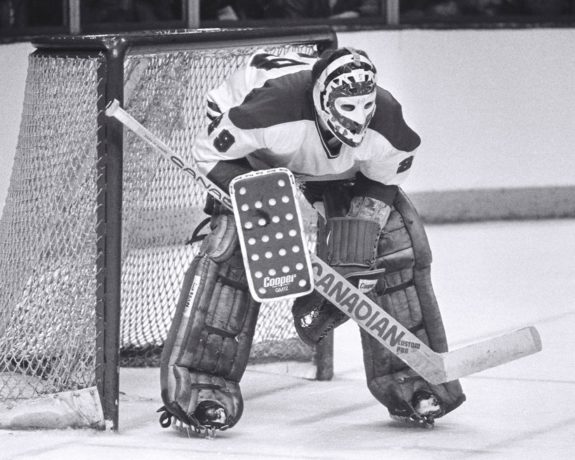
Harry Sinden rounded out this impressive group. In 1966, Sinden became the head coach of the Boston Bruins at just 33-years-old. He led them to their first Stanley Cup championship in 29 years, in 1970. He retired days after the big win, primarily due to a rocky relationship with Bruins’ management. He returned to the game as the head coach of Team Canada during the 1972 Summit Series.
Shortly after the international games concluded, he returned to Boston as general manager, replacing Milt Schmidt. He held that job for 28 years. In 1988 he added the title of president to his job and remained in that role until he retired in 2006.
Soviets Win After Break
After a two-week break, the Summit Series returned to action on Sept. 22, 1972, with the series now shifting to Moscow. Sinden and his team were looking to rebound after just one win and a tie in the first four games of the series back home in Canada.
With the help of 3,000 raucous Canadian fans who made the trip to Russia, Team Canada got off to a fast start in Game 5. J.P. Parise became the first Canadian professional to score a goal in Russia when he opened the scoring late in the first period. Bobby Clarke and Paul Henderson added goals in the middle frame to give Canada a 3-0 lead after 40 minutes.
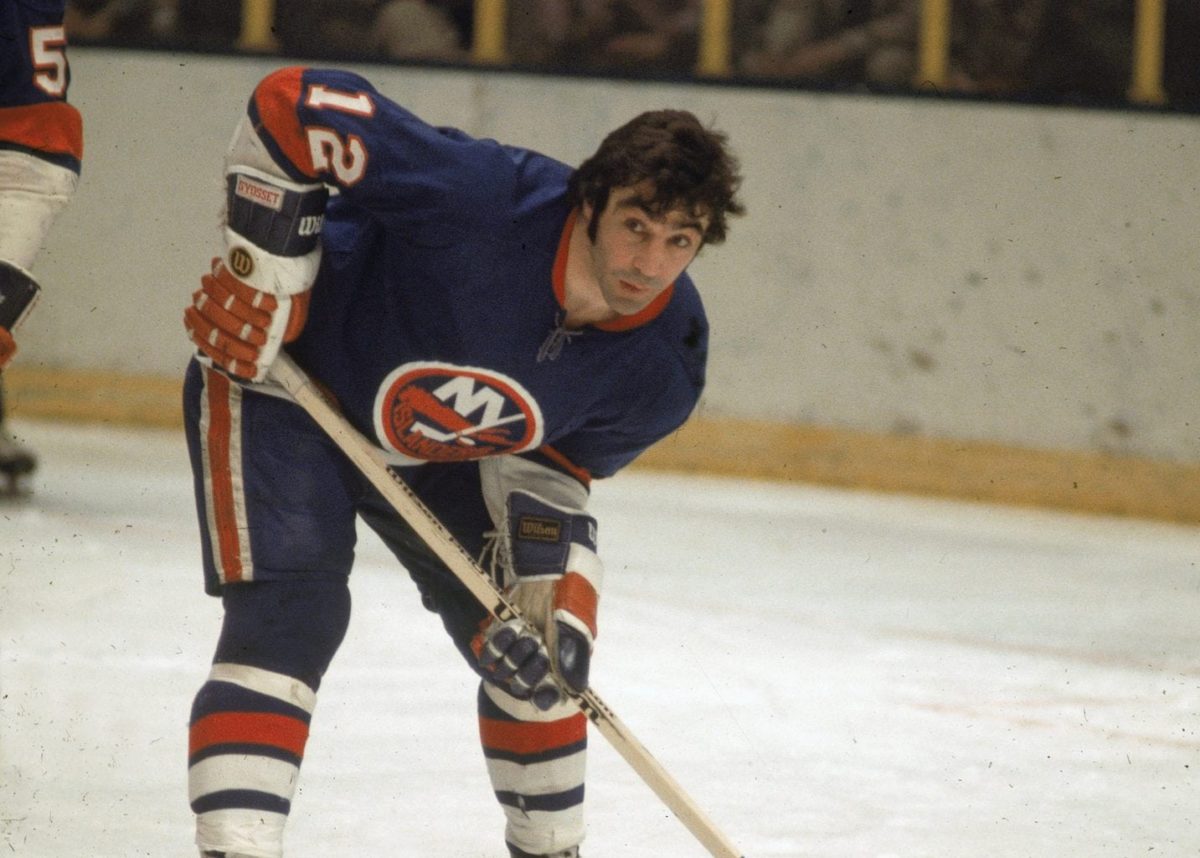
The third period was a different story as Canada seemed to stop skating and applying pressure like they did to build their three-goal advantage. Yury Blinov got the Soviet Union on the board, but his goal was quickly answered by Henderson’s second tally of the night.
Vyacheslav Anisin cut the lead to 4-2 at the 9:05 mark. He had the primary assist on Vladimir Shadrin’s goal just eight seconds later to move the Soviets to within one goal. Just over two minutes later, Aleksandr Gusev evened the score at 4-4. Now in total control of the game, Vladimir Vikulov completed the comeback with the game-winning goal at 14:46.
The Soviet Union scored five third-period goals, on goaltender Tony Esposito, on just 11 shots. The big come-from-behind victory gave them a 3-1-1 advantage in the series.
A Pair of Moves in Philadelphia
The Philadelphia Flyers made two notable trades on this date. First, on Sept. 22, 1991, they traded center Ron Sutter and defenseman Murray Baron to the St. Louis Blues for forwards Rod Brind’Amour and Dan Quinn.
Brind’Amour played 633 games for the Flyers, scoring 235 goals and 601 points. Quinn scored 11 goals and 37 points during the 1991-92 season before moving on to the Minnesota North Stars. The Blues got 37 goals and 91 points out of Sutter over the next three seasons. Baron played solid defense in 409 games for St. Louis, but it is easy to declare the Flyers the winner of this deal.
Three years later, on Sept. 22, 1994, they reacquired veteran goaltender Ron Hextall from the New York Islanders in exchange for fellow netminder Tommy Soderstrom, who played in just 78 games over three seasons on Long Island.
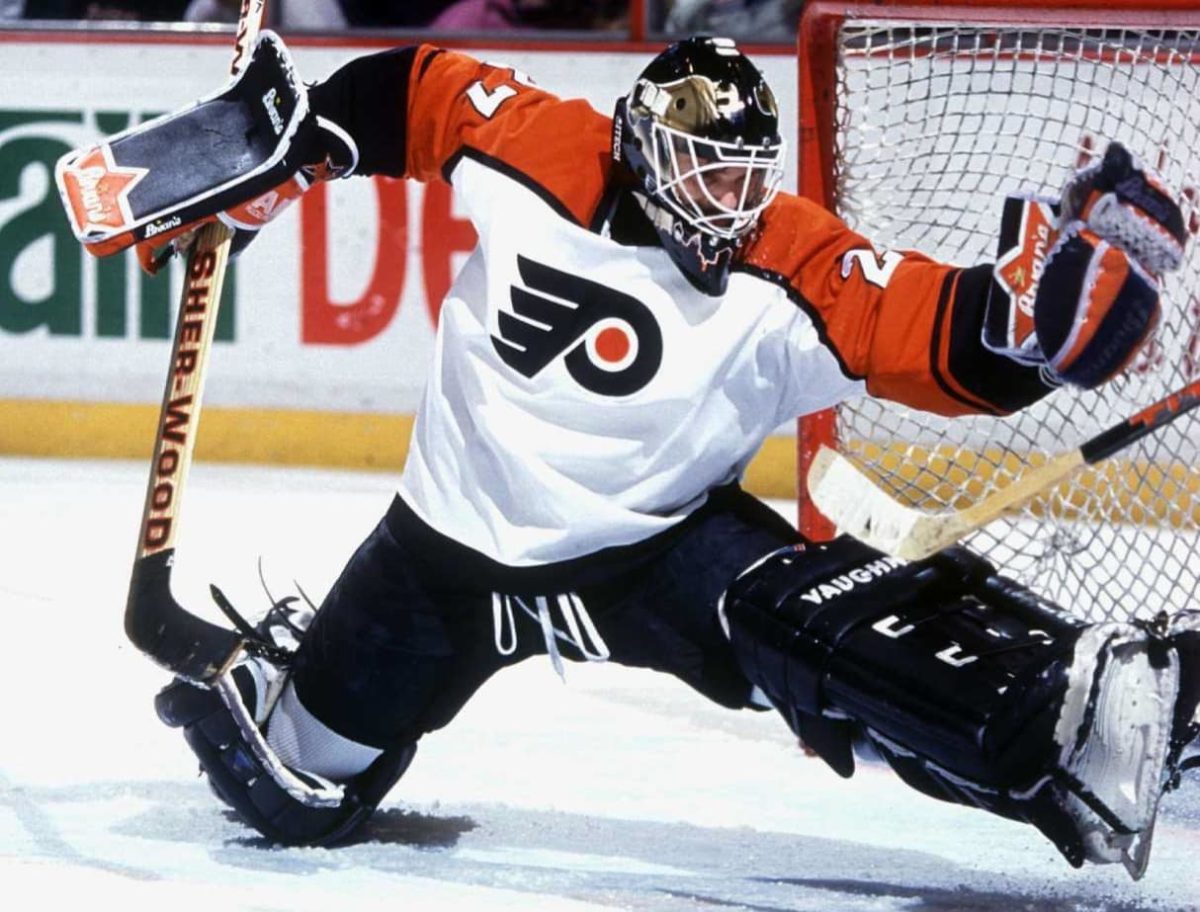
Hextall was initially drafted by the Flyers in 1982 and starred for them between 1986 and 1992 before he was sent to the Quebec Nordiques in part of the trade for Eric Lindros. His second stint with the team lasted five seasons and included back-to-back 31-win seasons in 1995-96 and 1996-97. He is the Flyers’ all-time leader in games played by a goalie (489) and wins (240).
Odds & Ends
Salary caps are nothing new for the NHL. On Sept. 22, 1934, the Board of Governors approved that collective salary limits for all clubs for the 1935-36 season would not exceed $62,500 with an individual salary limit of $7,000 on individual players.
Also, on this date, the original Ottawa Senators relocated to St. Louis and were renamed the Eagles. The franchise went 11-31-6 in their lone season as the Eagles before ceasing operations permanently.
On Sept. 22, 1981, Mikko Leinonen scored two goals to lead the New York Rangers to a 7-1 victory over Gothenburg in Sweden’s International Preseason Tournament. The Rangers won the tournament championship with the help of Hull, who was on a tryout with the team.
The Blackhawks officially named Mike Smith as their general manager on Sept. 22, 2000, after he previously held the role of “Manager of Hockey Operations.” He was the seventh general manager in franchise history. His tenure only lasted three years, but he drafted Duncan Keith, Brent Seabrook, Corey Crawford, and Dustin Byfuglien, who all had prominent roles in future Stanley Cup championships.
The Los Angeles Kings signed defenseman Kyle Clifford to his entry-level contract on Sept. 22, 2009.
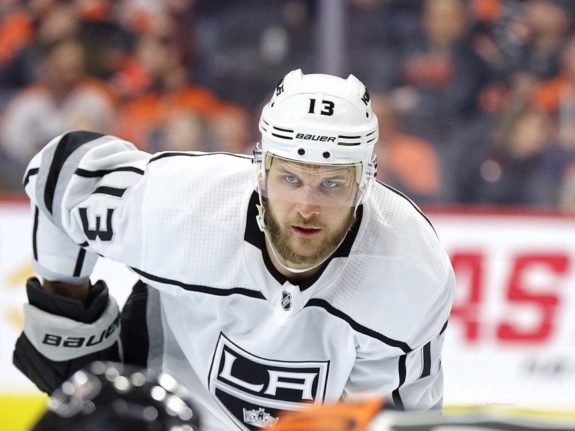
He played in 660 games for the Kings and was part of their Stanley Cup victories in 2012 and 2014. His time with the Kings ended on Feb. 6, 2020, when he was traded to the Toronto Maple Leafs for Trevor Moore and a pair of draft picks.
On Sept. 22, 2023, Nathan MacKinnon got his No. 29 retired by the Quebec Maritimes Junior Hockey League’s (QMJHL) Halifax Mooseheads. He scored 63 goals and 153 points in 102 games before getting selected first overall by the Avalanche in 2013.
Happy Birthday to You
A total of 20 current and former NHL players were born on Sept. 22. The first to play in the league was Gerry Foley, born on this date in 1932. The right winger played 142 games, between 1955 and 1969, for the Maple Leafs, Rangers, and Kings. The most recent debut was by San Jose Sharks center Alexander Wennberg, who turns 30 today.
The best career of those born on this date belonged to Mike Richter. The now 58-year-old former goaltender played all 666 games of his 14-season NHL career with the Rangers.
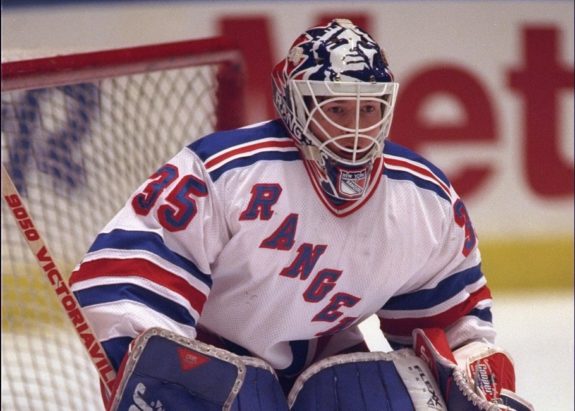
He is best remembered for helping to end New York’s 54-year championship drought with a Stanley Cup win in 1994. He also led the United States to a tournament victory at the 1996 World Cup of Hockey. He retired in 2003 with 301 wins, which were the most in franchise history until he was passed by Henrik Lundqvist.
Other notable players celebrating birthdays include Mark Johnson (67), Pat Fallon (52), Ethan Moreau (49), and Derick Brassard (37).
*Originally constructed by Greg Boysen
Sign up for our NHL History Substack newsletter
